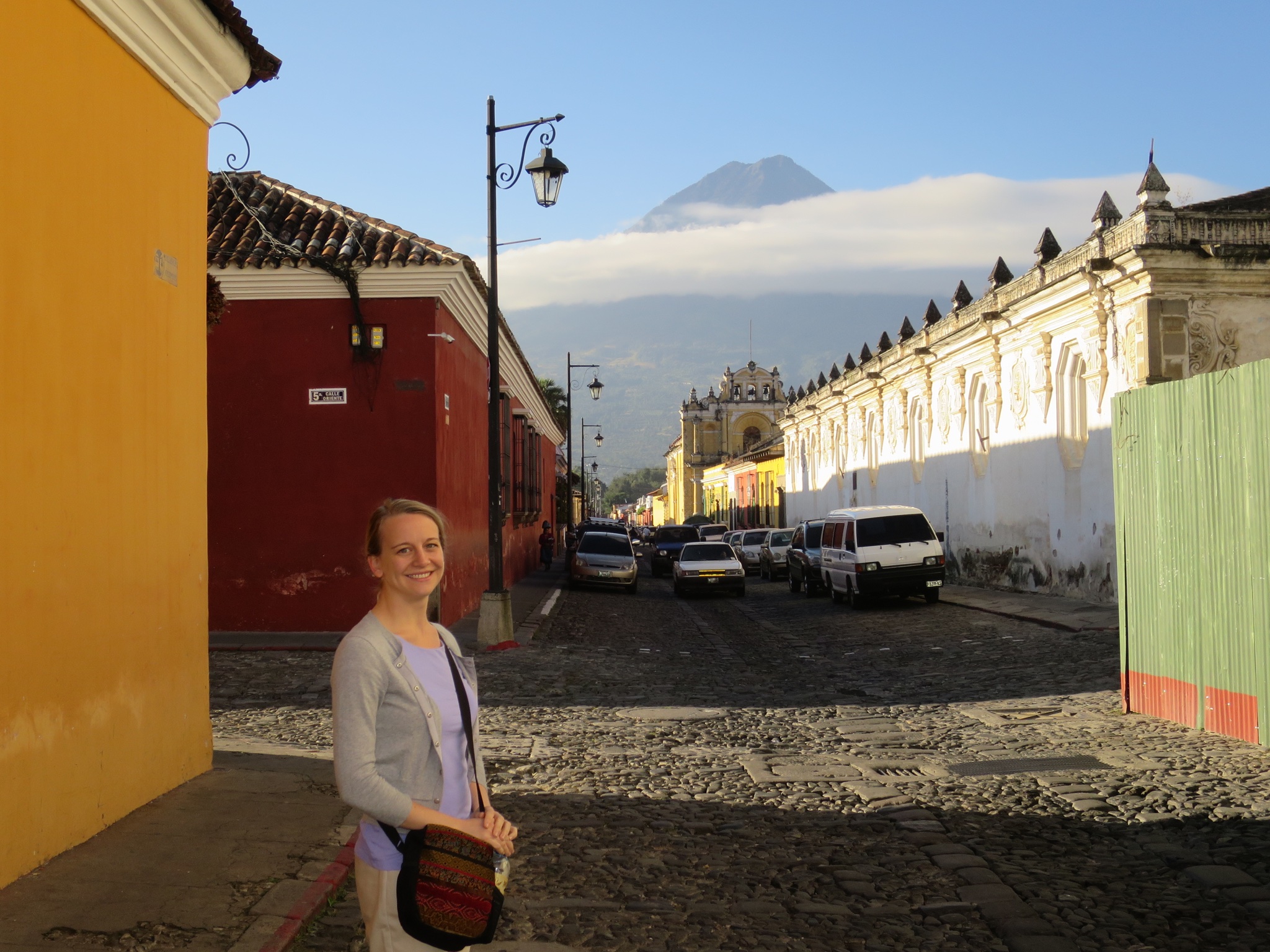Obras Sociales del Hermano Pedro – Madeline Hellendag, MD
Written by Madeline Hellendag, MD, PGY-2 at Kaiser Permanente San Francisco Obstetrics & Gynecology Program while on Global Health rotation at Obras Sociales del Hermano Pedro in Antigua, Guatemala in October 2016.
As the only Spanish-speaking physician on the gynecology team, I had the incredibly special job of talking to each patient’s family member(s) after the surgery was finished. At the end of each case, I would peek my head outside of the operating room hallway and call out “Familia de [patient’s first name]”. If it was one of the first cases of the day, I would be calling out to a large crowd of people made up of all of that day’s patients and their families. If it was the last case of the day, there would be just a couple of people left who had been waiting all day for their turn. I was able to give these family members the wonderful news that their loved one’s surgery had gone very well and that the surgery would likely make her feel much better. Without exception, the family members would praise me, pray for me, and thank me profusely. I felt undeserving of their gratitude, but also
incredibly moved by the potential for surgery to change these women’s lives for the better.
I spent one week on a surgical mission trip to Antigua, Guatemala where patients from all over the country came for treatment of a wide variety of chronic conditions. Our US team was made up of three general surgeons, one anesthesiologist, one gastroenterologist, three ob/gyns (including myself), multiple nurse anesthetists, nurses, scrub techs, and translators. We worked closely with the hospital staff at Obras Sociales de Hermano Pedro and performed 60 surgeries over four days in the operating rooms. The teamwork and camaraderie were incredible, and our passion was fueled by the strength and need of our patients.
I assisted two attending ob/gyn surgeons in 16 cases and learned so much from every encounter. While I was familiar with technical aspects of most of the surgeries, I learned so much about the complex relationships that these gynecologic pathologies have with a woman, her family, her culture, and her community. Each patient had a unique story, but there were profound themes present throughout: the societal pressure of fertility and multiparity, the chronicity of suffering with late presentation to care, and the commitments to hard work, manual labor, and family. Examples of these complexities included: The 37 year old woman with symptomatic anemia due to vaginal bleeding with fibroids who cried because she had always wanted to have a child but knew that she needed a hysterectomy in order to have the strength to continue her physically demanding warehouse work. And, the 50 year old woman with complete uterine prolapse with 15 children, farm work, and a husband with whom she still tried to be sexually active. These gynecologic conditions were not just medical problems, they were central to their well-being and daily lives.
I get overwhelmed when I think about the huge volume of women in need in Guatemala and around the world. We worked very hard over one week, but we had to turn many women away, because there simply isn’t enough time in the day to do all of the surgeries that they need. It is discouraging to have the sense that our work was just a drop in a huge bucket. However, when speaking to each patient’s family after surgery, I was reminded that I was involved in changing several individual lives for the better. My ob/gyn mentor during this trip told me that when he feels overwhelmed, he goes back to the Jewish Talmud which states: “whoever saves a life, it is considered as if he saved an entire world.” As an individual, I can only do so much, but this trip made me proud of the work that I do and all the people I will care for in the years to come.
